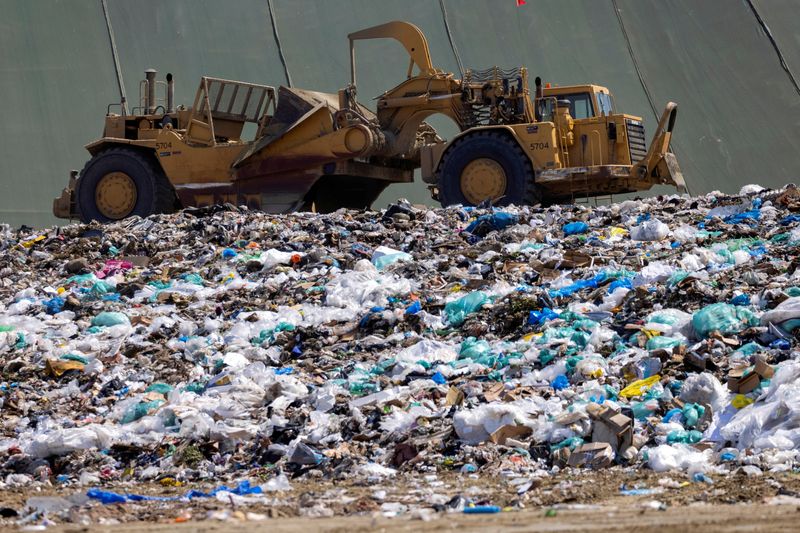By Leah Douglas
(Reuters) - A group of local U.S. government officials from 18 states on Tuesday urged the Environmental Protection Agency to phase out food waste disposal in landfills by 2040 to cut emissions of the potent greenhouse gas methane.
Food waste causes 58% of the methane emissions that come from landfills, the EPA said in an Oct. 19 report that calculated those emissions for the first time. The U.S. is lagging on a goal to halve food waste by 2030, and the EPA has been criticized for under-investing in the issue.
"Without fast action on methane, local governments will increasingly face the impacts of warming temperatures, sea level rise, and extreme weather events," the officials, including the mayors of Seattle and Minneapolis, said in a joint letter to the agency.
They also asked the agency to update landfill standards to better detect and mitigate methane leaks.
More than one third of food produced in the U.S. is wasted, and methane emissions from landfilled food waste are growing, totaling more than 55 million metric tons of CO2 equivalent in 2020, according to the EPA.
Landfills are responsible for about 14% of U.S. methane emissions, according to the EPA. Methane is 28 times stronger than carbon dioxide as a greenhouse gas over a 100-year period.
Some cities and municipalities have voluntary household composting programs for food waste. Residents of New York City, which was not among the cities that signed the letter to EPA, will soon be required to separate food scraps from the rest of their household trash.

The EPA provides resources on its website for household food waste management and has a program for businesses to commit to cutting their food waste, though the agency does not verify their progress.
Food waste will be a priority at this year's United Nations climate conference, to be held at the end of November in the United Arab Emirates.